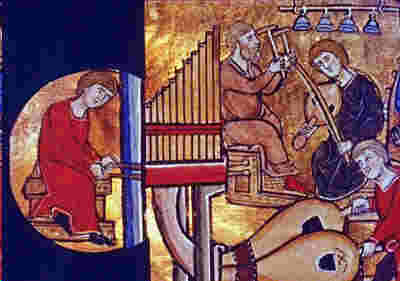

|
| |||||||||||||||||||||||||||||||||||||||||||||||||||||||
|
|||||||||||||||||||||||||||||||||||||||||||||||||||||||
|
| |||||||||||||||||||||||||||||||||||||||||||||||||||||||

Welcome to music of the second world war era—Page 2
the beginning
America's English friends had been struggling with the Germans for some time and were losing badly. There were signs that Japan, a militaristic empire, was preparing for war. France was lost. Poland was lost. Hitler and Stalin had signed a non-aggression pact. Things looked bad and were getting worse. At first there was disagreement over whether a war raging in far-distant Europe should be our war. The words made in Japan on cheap toys and household goods were about as close as most ordinary American citizens came to thoughts of the Orient. But conditions in Europe worsened and cracks in Japanese-American relations widened. Despite opposition in Congress, Franklin Roosevelt ("good old FDR") forced through the Lend Lease Act, which financed and supplied aid to England. Obsolete American destroyers found their way into the English navy. When Germany invaded Russia in 1941, Communist Russia changed status overnight from a belligerent to a friend. Lend Lease provided aging tanks, fighter planes, oil, and munitions to the faltering Russian army.
Then came December 7th, 1941, "A day which will live in infamy," and disagreement vanished in a puff of gun smoke. Overnight, strong internecine differences dissolved; we now had a common enemy. The "dastardly act" that was the bombing of Pearl Harbor transformed their war into our war. Our war was a good war, a righteous war, a war fought to preserve liberty all over the world. American isolationism, which had lingered after WWI, was dealt a severe blow. There was an initial shock of incredulity—were we really at war? Can this really have happened to us? How? People were frightened; their way of life was at stake. The future seemed no longer as clear or as bright. What happened next would set the stage for a thousand years to come. Selective Service Administration draft boards proliferated. Every male of draft age was issued a draft card that carried his unique number drawn at random in a national draft lottery. Men knew they would be examined for service in lottery number order; a classification of 1-A was seen as a death threat. Yet many didn't wait to be called up, and enlisted. Some enlisted because they couldn't stand the suspense and wanted to get it over with; others were chaffing at the bit to accomplish something worthwhile, even noble. Originally created in WWI and revised for WWII, Uncle Sam I Want You! posters popped up everywhere, reminders of the patriotic fervor of WWI. The irony that WWI was to be the war to end war was overlooked by most.
It was a time out of joint. It was a time of national stress. Lives hung in Limbo. Minds and hearts narrowed their focus to the day of winning and little else. Many on the draft short-list believed that once they were called up they would never return; they felt an urgent need to grab as much living as possible before life was gone altogether. Some gambled away their savings before joining up; others blew it all on a new wardrobe or a trip; others donated what they had to a needy relative or a charity. Stress seemed to bring out the worst and best in people. As newly-drafted soldiers swelled the ranks, uniforms appeared on streets, in railroad and bus stations, and in bars and restaurants everywhere. Civilians treated men in uniform like heroes; anything they wanted they got, within reason. By itself, this pampering seemed meritorious given the sacrifices that were ahead, but the unwritten rules of civil conduct had changed overnight. Nobody had planned it that way and nobody had announced a change in the collective lifestyle, but change it had. Life was now shorter than before, people thought; you might as well compress the rest of your life into the time you have left. How? Live now, was the obvious answer. Thus the pace of life increased; morals slackened; casual sex was an accepted norm in some circles. People drank and smoked too much. Tempers were short and youthful energy burst its normal confines. Scuffles took place in cabarets, at dances, and in other social situations. MPs with batons at their sides patrolled some streets nightly. For the most part, people just looked the other way. On the other hand, attendance at church services increased. Many a veteran of WWI signed up for active duty or volunteered for one of the auxiliary services, thus releasing younger personnel for combat. Auxiliaries included the Civil Air Patrol, which towed targets, conducted aerial searches, and ran logistics missions; air raid wardens; self-defense units; and the coastal watch. Professional entertainers served food and sang or danced with servicemen at United Service Organizations (USOs). ETAF Recommends...Coming.
Search this web site with Electricka's Search Tool:
tap or click here
Electricka's Theme Products
Shop At Cafe Press
This web site and
its contents are copyrighted by
Decision Consulting Incorporated (DCI).
All rights reserved. |
| ||||||||||||||||||||||||||||||||||||||||||||||||||||||